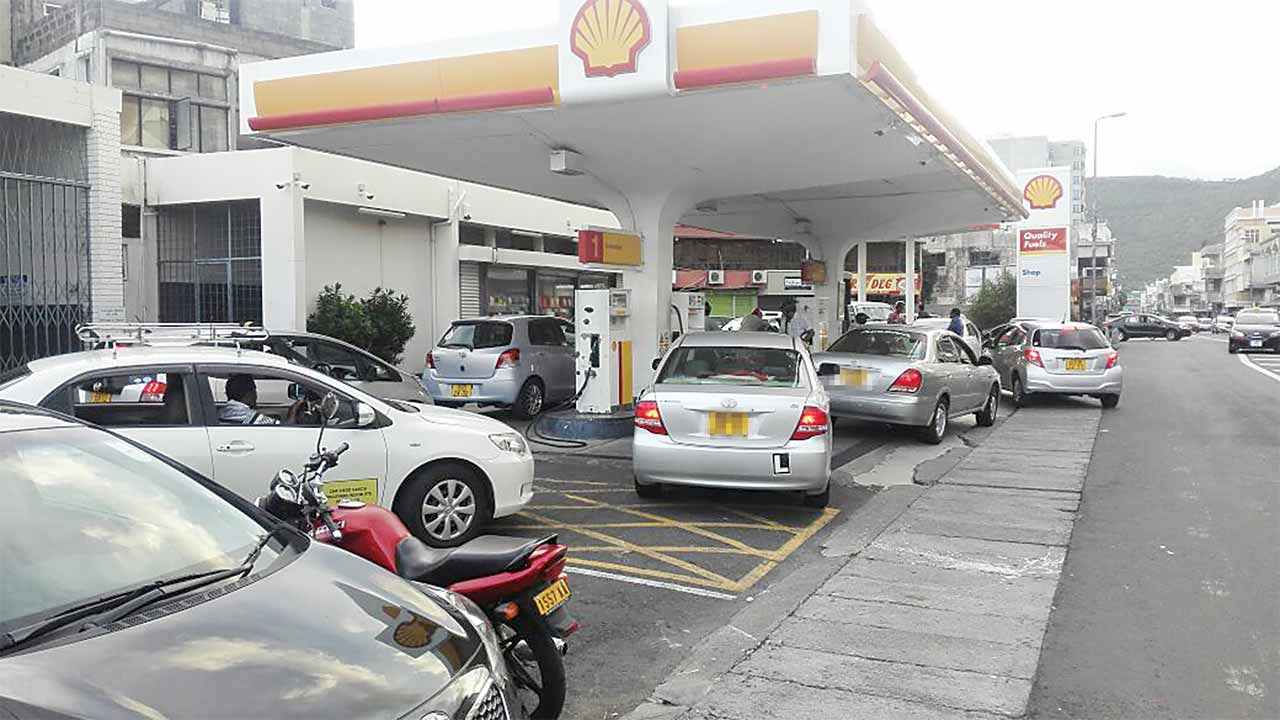
The State Trading Corporation has decided to review upwards the price of petroleum products after nearly one year of status quo. This hike follows the evolution of crude oil prices on the international markets which have been trading upwards. This review will have an impact on the price of other goods and services as energy costs go up.
Electricity prices might go up following the recent price hike of petroleum products. This statement was made by the Minister of Energy and Public Utilities and Deputy Prime Minister, Mr Ivan Collendavelloo. The retail price of Mogas (petrol) has been raised to Rs 42.70 per litre while that of Gas Oil (diesel) has increased to Rs 32.45 per litre. This represents approximately 10 per cent increase in prices at the pump.
“It is quite obvious that any increase in the price of petroleum products will have an impact on the price of electricity. I am unable to say how much that will be as it is still too early,” said Mr Collendavelloo on Thursday. He was speaking to the press on the sidelines of the inauguration of photovoltaic unit at the Lois Lagesse Centre, in Beau Bassin.

According to official figures available, the latest being for 2015, some 2,996 GWh of electricity was generated in 2015. Around 37.8 per cent was generated from fuel oil and diesel. Electricity generated from fuel and diesel oil together increased by 4.8 per cent in 2015.
Therefore, any increase in fuel prices will result in a cost increase for the Central Electricity Board as 37.8 per cent of its production capacity will have an increase in operational costs. Higher energy prices, if and when they intervene, will result in an increase in the cost of production of many goods and services. Most likely, the higher operational costs will be passed on to consumers wherever possible.
To justify for the rise, the State Trading Corporation stated that to maintain prices stable over the past year, its had recourse to funds in the Price Stabilisation Account (PSAs). “However, as the balance in the PSA has been depleted, there is no other option than to increase the prices. Therefore, the retail prices of Mogas has been increased by Rs 3.85 or 9.91% and that of Gas Oil has been increased by Rs 2.95 or 10 %. The new retail prices are effective as from 00.00 hr on Wednesday 15 February 2017.”
 Transport operators want subsidised fuel
Transport operators want subsidised fuel
Owners of individual buses claim subsidies on the price of diesel, as is the case for bus companies. The Mauritius Bus Owners Co-operative Federation Ltd. (MBOCF) made its calculations with the rise in the price of diesel. They will pay Rs 6,500 more monthly. This is what the secretary of the association Sunil Jeewoonarain indicates.
“With the rise in the price of diesel, this will exceed their budget. We made our calculations and we will need an additional Rs 6,500 per month for diesel,” he said. He asks the government to come with subsidies. “If we have subsidies, then we are not going to demand an increase in the bus ticket. If not, we're going to ask for subsidies,” he says.
The bus companies are already receiving subsidies from the government. “It does not make sense for the bus companies to receive subsidies from the government while the individual operators do not receive anything. We have to be on an equal footing. The subsidy will be in the public interest,” he says. On average a bus consumes 2,200 litres of diesel monthly, Sunil Jeewoonarain points out.
Rafick Bahadoor, president of the Taxi Proprietors Union (TPU), said the government did not take into consideration those who use gasoline and diesel every day. “We can not increase our price if the price of bus tickets does not increase. These are the middle class and those who do not own a car that travels by taxi,” he explains. The latter also asserts that taxi owners can not ask for too much, as they benefit from duty-free cars and pay lesser registration fees.
 Snowballing effect on other goods
Snowballing effect on other goods
It is not only at the service station that the price of gasoline and diesel will rise. This increase will affect many sectors that affect all Mauritians on a daily basis, not just those who own a vehicle.
“The rising price of fuel will weigh heavily on the backs of consumers. Now you will have to spend a larger budget to travel, whether in your own vehicle or by taxi. Consumers should also tighten their belts for the purchase of certain products,” says Suttyhudeo Tengur, president of the Association for the Protection of the Environment and Consumers (APEC)
According to him, when gasoline arrives at the port, it costs Rs 17 per litre. “However, consumers pay Rs 42.70 per litre on the market. They are paying Rs 25,40 in terms of taxes. It's huge,” he says. Rising fuel prices will make local products less competitive, adds Mr Tengur. “The cost of production of local businesses that use a lot of fuel will rise.”
Economist Pramode Jaddoo says that in two or three months, the price of services and products will follow suit. He believes that the rise in fuel prices will directly influence the cost of transportation, which represents a large chunk of the cost of production.
Naden Padayachi, manager of Logidis Ltd, a subsidiary of the IBL group, points out that in the transport and logistics sector, fuel accounts for more than 50% of operating expenses. "An increase of about 10% in the price of fuel will weigh heavily on operating costs. Thus, we will have to review the rates for our services in the near future.”
 J'aime
J'aime














